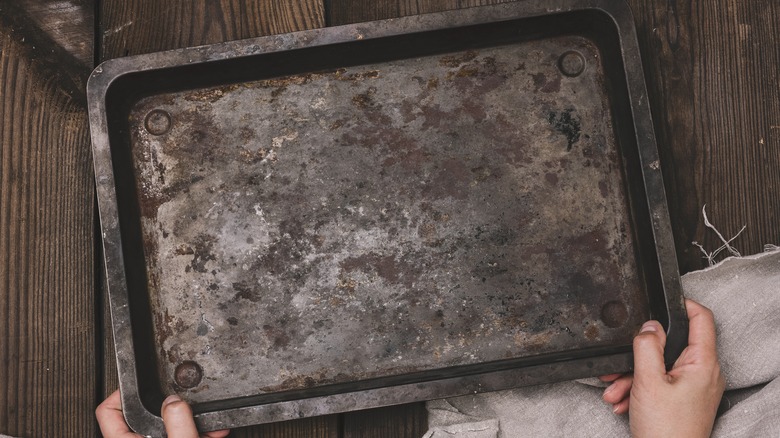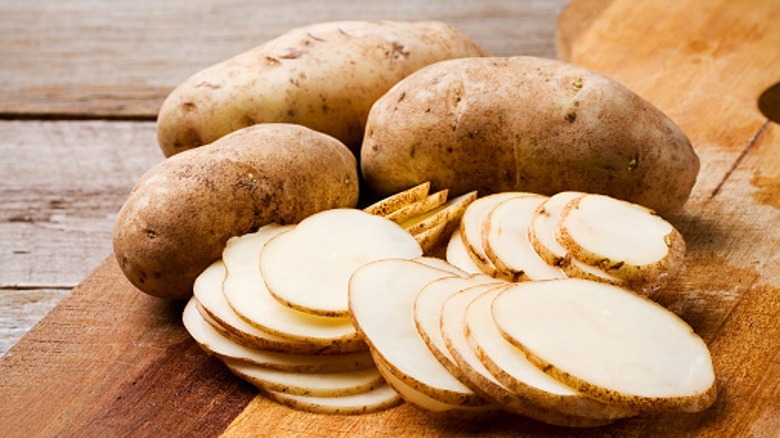How To Remove Rust From Your Baking Sheets With A Potato
Removing rust can be a total pain — especially when you're doing so with a baking sheet. However, you can simplify the process by using a basic root vegetable that you may already have in your kitchen: a potato. By dipping a sliced spud in dish soap and rubbing it on your baking sheet, you can clean the pan quickly and easily. You'll first want to cut your spud in half so that the insides are exposed. Then, dip one end in dish soap, though you can also use baking soda if you'd prefer. If you really want to cover your bases, try using both at once. Or, to make the scrubbing ever more effective, add a little salt to your dish soap-soaked potato, which can act as an exfoliant to rub off the rust.
Then, all you have to do is slide the spud across the rusted areas of your baking sheet, pressing down hard to scrape the gunk away. If the cleaning materials (soap, salt, or baking soda) get rubbed off of the end of your potato, simply cut a slice off and dip it all over again. Once you're done, you'll want to rinse your sheet and immediately dry it completely — but it really is that simple to wash rust off your baking sheet.
Why potatoes can remove rust
How does this process work, exactly? Potatoes contain oxalic acid, which is surprisingly good at dissolving rust. In fact, this acid is even sold on its own (typically in crystal form) as a cleaning chemical designed to get rid of rust. When the two come into contact, they create a double displacement reaction. This converts rust into iron oxalate, which can easily be washed away with water. Any old potato will work well here, but if you have a sweet potato on hand, then you're really in luck, as these sugary spuds contain even more oxalic acid.
While using potatoes may be one of the easiest and cheapest ways to rid your baking sheet of rust, it's not the only one. A common option is to let a baking soda mixture sit on it for up to half an hour. Other methods include using citric acid, which you may need to make a special trip to purchase, or a lemon and salt mixture, which may need to sit for a whopping two hours. But, if you already have a spud on hand and not much time to spare, try this method out before getting any other materials (or harsh cleaning solutions) involved.

